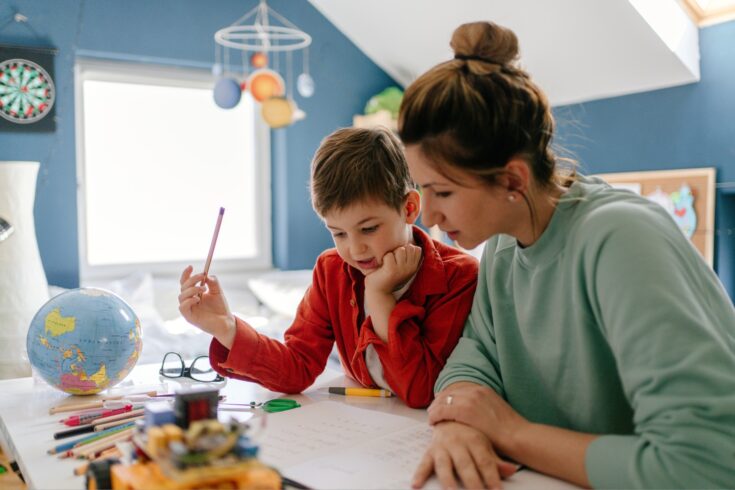The early days of lockdown featured competing narratives of parental and family wellbeing in the UK.
Parents were juggling with homeschooling or relieved to no longer face the daily commute. Some were key workers going to their job as usual, others were worried about having work at all.
The data and case studies reported in the media were largely from internet surveys that were not nationally representative. There was little data from before the pandemic to benchmark any change in wellbeing.
UK Research and Innovation (UKRI)-funded studies and initiatives tracked how parents were coping with lockdown.
Childcare and wellbeing
The Economic and Social Research Council (ESRC)-funded Childcare and Wellbeing in Times of COVID-19 project is led by the University of Edinburgh.
The project is providing an evidence base for how the pandemic has affected childcare and wellbeing.
Dr Ingela Naumann, who is leading the research, said:
The closure of schools and childcare services created a national childcare crisis with potentially severe effects on families’ livelihoods and wellbeing.
Since COVID-19 and its impacts are likely to be persistent, we urgently need crisis-resilient solutions.
This should encompass high-quality childcare provision that reaches all families to mitigate the impact of COVID-19 or future pandemics.
Data from longitudinal surveys
The team has used data from nationally representative and longitudinal surveys like the ESRC-supported Understanding Society to examine the pandemic’s effect on parents’ wellbeing.
The Next Steps cohort is a longitudinal study of around 16,000 people in England born in 1990.
It revealed that more than half of mothers felt more stressed during the pandemic, compared to one in three fathers.
Find out more about the Next Steps study (Centre for Longitudinal Studies website).
Helping families around the world
With families under extreme stress, UNICEF reports showed a global escalation of child abuse.
The UKRI Global Challenges Research Fund Accelerate Hub led an urgent response, with a coalition of:
- World Health Organization (WHO)
- UNICEF
- Global Partnership to End Violence
- USAID
- US Centers for Disease Control and Prevention.
Led by Professor Lucie Cluver and Dr Jamie Lachman from University of Oxford, the team co-developed a set of open source COVID-19 parenting resources.
193 million families, 180 countries
The resources have helped over 193 million families in 180 countries worldwide.
The project was also recognised by ESRC’s Celebrating Impact Prize: it was a finalist in the Outstanding International Impact category.
Professor Cluver said:
Parents and caregivers of children are heroes of the COVID-19 epidemic.
These past months have pushed every family to its limits, and parents deserve the best evidence-based support.
But this is the tip of the iceberg.
Whilst the social and economic fallouts of COVID-19 continue, we need to get effective resources to every family in every corner of the world.
The project condensed evidence from multiple randomised trials of child abuse prevention programmes in low-income countries.
In March 2020, worksheets were endorsed by all collaborating agencies, and released onto the WHO and UNICEF COVID-19 websites.
Watch ESRC’s video about the project:
Video credit: ESRC
On-screen captions and an autogenerated transcript of the video is available on YouTube.
Read more about the COVID-19 parenting project.
Last updated: 14 December 2021

